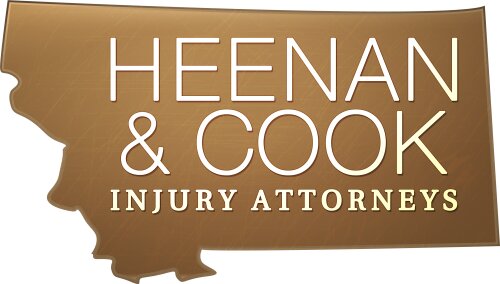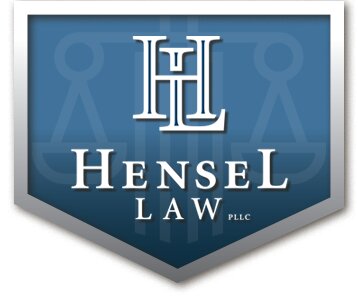Best Personal Injury Lawyers in Billings
Share your needs with us, get contacted by law firms.
Free. Takes 2 min.
List of the best lawyers in Billings, United States
About Personal Injury Law in Billings, United States
Personal injury law in Billings falls within Montana tort law. It covers harm caused by the negligence or intentional actions of others. Most cases arise from car crashes, slips and falls, medical errors, or workplace accidents. Victims pursue compensation for medical bills, lost wages, and pain and suffering through civil claims handled by attorneys and the Montana court system.
In Montana, a successful personal injury claim hinges on proving fault, causation, and damages. You must show that another party violated a duty of care and that the breach led to your injuries. Insurance carriers and defense counsel typically control much of the early process, so engaging a local attorney early can help evaluate your options and protect your rights.
Why You May Need a Lawyer
- Car crash with complex fault or multiple at-fault drivers in Billings - A crash on I-90 or I-94 can involve shared fault, commercial drivers, and uninsured motorists. An attorney helps sort fault, gather witness statements, and negotiate with insurers. Without counsel, you may accept an undervalued settlement.
- Medical errors or hospital negligence at local facilities - If you suspect misdiagnosis, surgical errors, or improper treatment at a clinic such as Billings Clinic or St Vincent Healthcare, a lawyer can review medical records and guide you through complex liability issues and insurance claims.
- Slip and fall at a business or public venue - A wet floor, poor lighting, or hazardous conditions at a store or hotel in Billings can create a premises liability claim. An attorney helps prove notice, dangerous condition, and the extent of damages.
- Workplace injuries requiring workers’ compensation and third-party claims - If a Billings site caused a non-work-related injury or contributed to harm, a lawyer can evaluate both workers’ compensation and third-party liability to maximize recovery.
- Dog bites or attacks involving local residents or visitors - Local property owners may be liable if they failed to control a known aggressive animal or if proper precautions were not taken.
- Product liability for a defective consumer item - If a defective device or tool used in Billings caused injury, an attorney can assess design or manufacturing flaws and pursue compensation from manufacturers or retailers.
Local Laws Overview
Statute of Limitations for Personal Injury
In Montana, most personal injury actions must be filed within a limited period after the injury. The standard window is typically three years, though some claims against government entities or specific circumstances may have different deadlines. Missing the deadline generally bars a claim, regardless of fault or damages.
For general guidance, see Montana statutes and court guidance on filing timelines. It is essential to consult a local attorney to confirm the exact deadline for your case and to account for any tolling or exceptions that may apply.
Statutes of limitations for personal injury in Montana are typically three years, with shorter or different deadlines for certain claims or government entities.
Sources: Montana Legislature and Montana Judicial Branch provide the official framework for time limits on civil actions. Montana Legislature and Montana Judicial Branch.
Comparative Negligence Framework
Montana follows a modified comparative negligence approach. A plaintiff’s recovery may be reduced by their own percentage of fault, and recovery can be barred if the plaintiff is more than a specified threshold at fault. This means plaintiffs still may recover some damages even when they share fault, but the amount depends on fault allocation.
Legal counsel review is important to determine how fault may impact settlement offers or court awards, especially in multi-car crashes or complex premises liability cases.
Montana employs a modified comparative negligence regime that reduces damages in proportion to the plaintiff's fault, with a bar if fault exceeds a statutory threshold.
For more details on fault apportionment, refer to the Montana Legislature and Montana Judicial Branch resources. Montana Legislature • Montana Judicial Branch.
Wrongful Death and Survival Actions
When a fatal injury occurs, survivors may pursue wrongful death or survival actions under Montana law. These claims seek compensation for losses such as funeral expenses, loss of companionship, and the deceased’s medical expenses and earnings. Spouses, children, and certain other relatives may have rights to pursue these claims in Billings courts.
Special rules apply to calculating damages and who may file. An attorney can determine eligibility, deadlines, and the best way to present evidence to maximize recovery.
Wrongful death and survival actions are governed by Montana statutes that set who may sue and what damages may be recovered.
Official guidance on these topics can be found through Montana’s legal resources and court systems. Montana Judicial Branch • Montana Legislature.
Frequently Asked Questions
What is a personal injury claim in Billings?
A personal injury claim seeks compensation for injuries caused by another party's negligence or intent. It typically involves gathering medical records, proving fault, and negotiating with insurers or pursuing a lawsuit if needed.
How long does a case usually take to resolve in Billings?
Resolution times vary widely. Simple claims may settle in a few months, while complex cases or court trials can take a year or more. Your attorney can provide a realistic timeline based on facts and court schedules.
What is the typical cost to hire a personal injury attorney?
Many personal injury attorneys work on a contingency fee basis, taking a percentage of the recovery if you win. If you do not recover money, you may owe limited or no fees depending on the agreement.
Do I need to hire a local Billings attorney for my case?
Local familiarity helps with local courts, insurers, and medical providers. A Montana attorney who regularly handles Billings cases can coordinate with local experts and witnesses more efficiently.
How do I prove fault in a car crash case?
Proving fault typically requires police reports, driver statements, witness testimony, traffic camera footage, and physical evidence. An attorney helps organize this evidence and preserve your rights.
Can I still recover if I am partially at fault?
Yes. Montana uses a modified comparative negligence rule. Your recovery may be reduced by your degree of fault, but severe shared fault cases can still yield compensation.
Should I speak to an insurance adjuster after an accident?
It is wise to limit statements and avoid signing releases before speaking with an attorney. An attorney can help you communicate with insurers and avoid harming your claim.
Do I need to file a claim with the government for a public entity injury?
Injuries involving public entities or government workers may be governed by special statutes and notice requirements. A lawyer can determine whether you must file under the Governmental Tort Claims Act and how to proceed.
Is there a statute of limitations I should be aware of?
Yes. In most personal injury matters, the filing deadline is three years in Montana, but there are exceptions. Consult an attorney promptly to avoid missing a deadline.
What is the difference between a settlement and a lawsuit?
A settlement resolves the claim without court action, typically through a negotiated amount. A lawsuit starts with a complaint filed in court and may lead to a trial if the parties cannot agree.
How much evidence do I need to win a case?
Evidence must establish fault, causation, and damages. This includes medical records, expert opinions, and documentation of time lost from work. Your attorney will guide you on required evidence.
Can I recover future medical expenses?
Yes. If future medical care is necessary due to the injury, your claim may include projected future medical costs, not just past medical bills. An attorney may use experts to project these expenses.
Additional Resources
- Montana Department of Justice (DOJ) - State agency that enforces consumer protection laws and handles civil rights and other legal concerns. DoJ provides guidance on tort and liability issues and can help with complaint processes. https://doj.mt.gov/
- Montana Courts (Montana Judicial Branch) - Official source for court rules, civil procedure, and case management in Montana. Useful for understanding how personal injury cases proceed in Billings courts. https://courts.mt.gov/
- Montana Department of Transportation (MDT) - Provides traffic safety data, road conditions, and safety initiatives relevant to motor vehicle accident claims and highway design considerations in Montana. https://www.mdt.mt.gov/
Next Steps
- Collect and organize documents. Gather medical bills, police reports, insurance communications, photos, and employment records related to your injury within 1 week of injury if possible.
- Identify potential local Billings personal injury attorneys. Look for lawyers who focus on tort law, have a track record in similar cases, and offer initial consultations within 1-2 weeks.
- Schedule consultations and prepare questions. Bring your documentation and ask about fees, case strategy, and timelines. Expect 30-60 minute meetings.
- Assess attorney fit and communication style. Consider responsiveness, clarity of explanations, and willingness to explain options and risks in plain language.
- Choose a lawyer and sign a contingency agreement. Confirm fee structure, anticipated costs, and who will handle the case strategy. Allow 1-2 weeks for negotiations.
- Begin working on evidence and expert referrals. Your attorney may order additional medical exams, gather expert opinions, and prepare statements for settlement negotiations.
- Monitor progress and adjust strategy as needed. Stay in touch with your attorney about medical progress, settlement offers, and any new evidence that arises.
Lawzana helps you find the best lawyers and law firms in Billings through a curated and pre-screened list of qualified legal professionals. Our platform offers rankings and detailed profiles of attorneys and law firms, allowing you to compare based on practice areas, including Personal Injury, experience, and client feedback.
Each profile includes a description of the firm's areas of practice, client reviews, team members and partners, year of establishment, spoken languages, office locations, contact information, social media presence, and any published articles or resources. Most firms on our platform speak English and are experienced in both local and international legal matters.
Get a quote from top-rated law firms in Billings, United States — quickly, securely, and without unnecessary hassle.
Disclaimer:
The information provided on this page is for general informational purposes only and does not constitute legal advice. While we strive to ensure the accuracy and relevance of the content, legal information may change over time, and interpretations of the law can vary. You should always consult with a qualified legal professional for advice specific to your situation.
We disclaim all liability for actions taken or not taken based on the content of this page. If you believe any information is incorrect or outdated, please contact us, and we will review and update it where appropriate.










